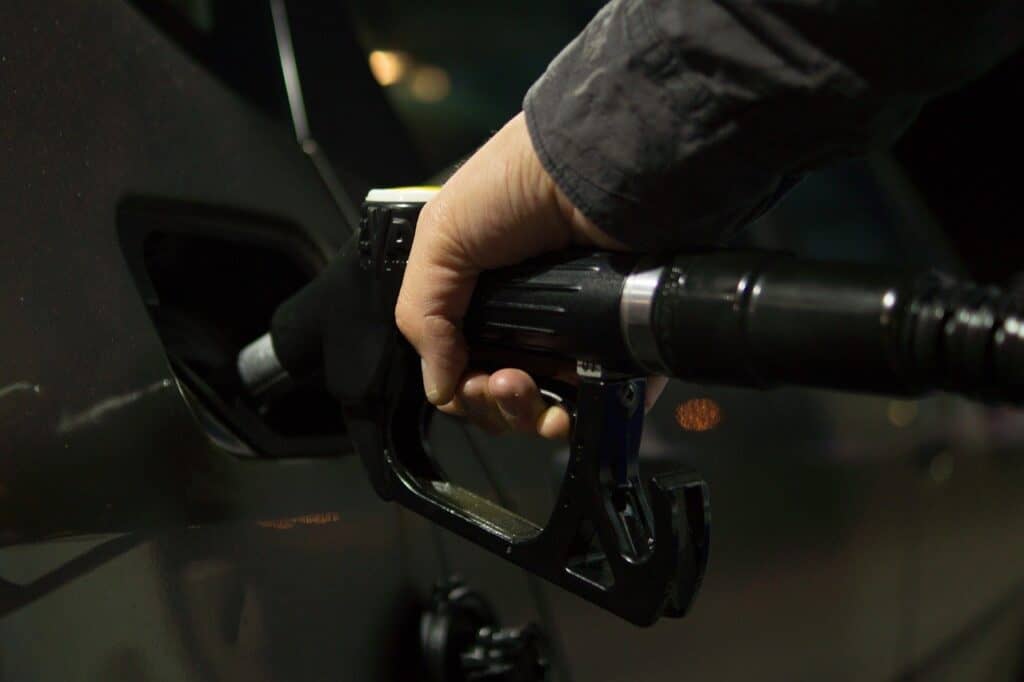Bamboo is more than just food for a giant panda. The grass grows at an incredible rate and thanks to its unusual structure, it’s as tough as wood and can be used to replace wood in many applications. Great swathes of the world are covered in bamboo now thanks to its commercial uses, but is bamboo a fire hazard, and should we be cautious about the kind of bamboo products we use at home or at work?
Bamboo is flammable and can catch fire somewhat readily. Bamboo has an ignition temperature of 265 degrees Celsius (509 Fahrenheit), making it catch fire more easily than many other types of wood.
Let’s take a closer look at bamboo, how it’s used, and the fire safety concerns. Check it out.
Your # 1 priority is keeping your family safe. As a firefighter, I recommend everyone has updated smoke detectors that don’t require battery changes, like these ones from Kidde, a fire extinguisher, like this one from Amerex, and a fire escape ladder if you have bedrooms above the first floor, I recommend this one from Hausse.
Also read: What Makes Something Flammable?
What Is Bamboo?

Bamboo is not just one grass but a whole family of grasses with similar properties. It’s not known where the word “bamboo” comes from though it may have originated in Malay or the Kannada language of West India.
Unlike most forms of grass there’s no secondary growth inside the stem and this leads bamboo to grow in columns rather than in tapering spreads.
It is, without a doubt, among the fastest-growing of grasses and some species can grow up to 3 feet in height in a single day! It is happy to grow nearly anywhere too.
This has made bamboo an attractive choice of plant to help mitigate deforestation and climate change – it requires little care and will quickly grow to its maximum height. This also makes it a much more sustainable building material than many others.
While it is not wood, bamboo has wood-like properties and the strength-to-weight ratio is almost identical to that of timber. This means it has a strength that is comparable to some hardwoods and strong softwoods.
Here is some more good information about bamboo:
Does It Burn Easily?
Yes, bamboo burns quite easily, in fact, several gardening publications warn against using bamboo as a privacy screen for your garden.
They note that while bamboo will, indeed, keep out prying eyes and quickly thanks to its fast growth rate, in dry conditions, you are creating a dry, grass screen which if it catches light will rapidly spread a fire.
If it is planted within 30’ of a dwelling or 15’ of a driveway then it’s a very good idea to remove the bamboo and replace it with something rather more fire-resistant.
Also read: Is Nylon Flammable? Kinda…
More Flammable Than Wood?
This is a hard question to answer because “wood” covers the material from nearly every tree on earth and “bamboo” is the material from many different species of grass.
There are many types of wood, but the ignition temperature is usually between 250 and 300 degrees Celsius (482 to 572 Fahrenheit), whereas bamboo has an ignition temperature of 265 degrees Celsius (509 Fahrenheit).
So, I would say bamboo is a little more flammable than most types of wood. If you’re going to use bamboo to construct a dwelling, it would be highly beneficial to ensure that it was treated with fire-retardant chemicals.
It is worth noting that you should check your local building codes before opting to use bamboo as a construction material anyway – many areas forbid its use completely.
Also read: How Hot Does Wood Burn? Examined
What About Bamboo Wood?
Technically, there’s no such thing as “bamboo wood”. That’s because it’s grass and while the end product that we use in things like construction and creation of individual items is as hard as wood, it’s not wood.
However, as we’ve already seen – “bamboo wood” is flammable.
If it is to be used in large quantities, then you want to ensure that you are treating it with fire-proofing chemicals, otherwise, it presents a substantial fire risk and we don’t think we’d want to live in a dwelling made of untreated bamboo.
Take a look a bamboo burning in a fire here:
Why Should It Not Be Burned?
Traditionally, many peoples have used bamboo as a fuel. In fact, in China they’ve been using bamboo charcoal (that is the burned product of bamboo) to heat homes and it is said to be very clean burning.
However, we wouldn’t recommend that you start to heat your home by burning bamboo.
That’s because due to the farming processes and the fact that bamboo is often grown on marginal land not suited for other crops or trees – it may be contaminated with heavy metals.
Chromium, Lead, Cadmium, Copper, Nickle, and even Arsenic can be found in some species of bamboo and you really don’t want to inhale any of these things in the smoke of burning bamboo.
What About Bamboo Fabric?
To some extent, yes, bamboo fabric is flammable.
That doesn’t mean that it will catch on fire easily, however, and you’ll find that it has a similar level of flammability to cotton, and it won’t burn as easily as polyester does. So, it’s safe to wear as clothing.
Also read: At What Temperature Does Cotton Burn? Is it Flammable? and Is Polyester Flammable? Is it Fire Resistant?
Bamboo Fencing?
Yes, bamboo fencing either from a privacy screen or a fence made out of the finished product is likely to be flammable, unless it has been treated with fire-resistant chemicals.
Can Bamboo Explode?
Bamboo can explode in a fire, not because it’s made of explosive material but because it’s easy for pockets of air to form throughout the grass as it grows. If you heat up air in a fire, it expands and can shred the bamboo into tiny pieces.
This is theorized to be how firecrackers were first created, take a look.
This is a good reason not to use bamboo to fuel a campfire.
Fire Resistance?
Bamboo is not at all fire-resistant and should never be chosen to act as a fire break or in any other capacity around a naked flame.
It is the opposite of fire resistant, unless treated.
Related Articles
House Fire Temperature: How Hot Does It Get?

